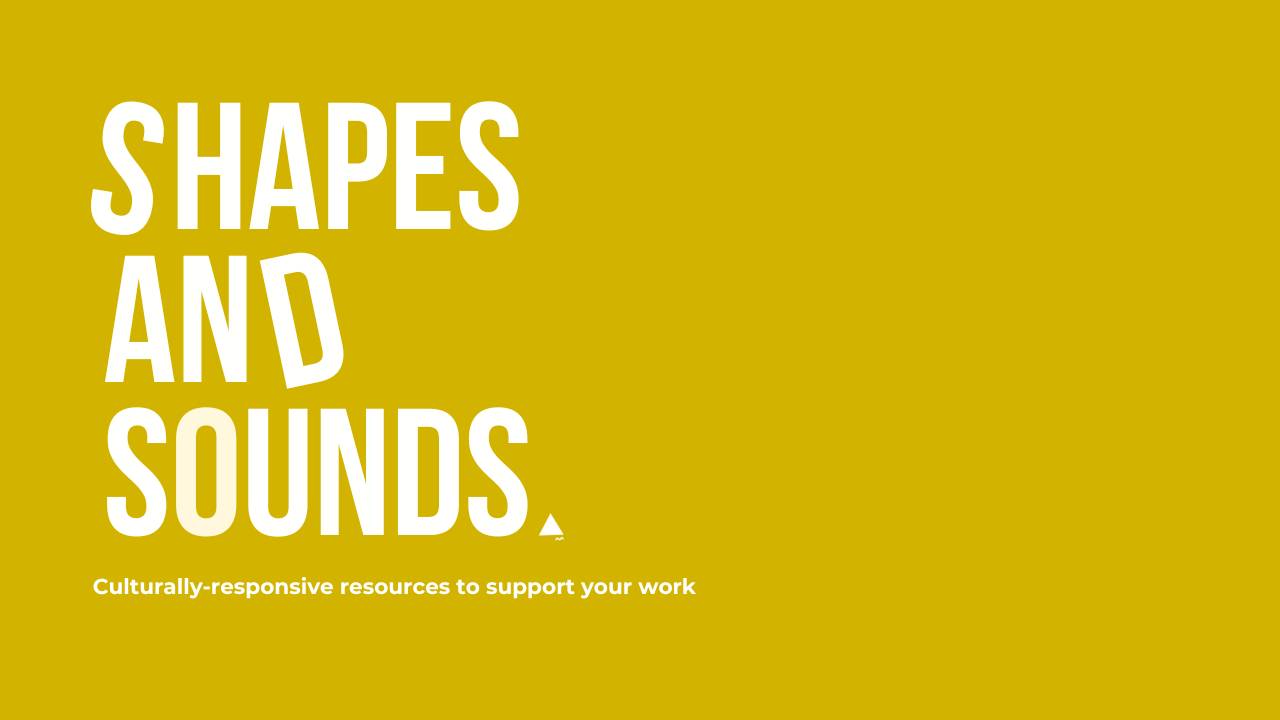September Organisational Newsletter
Sep 01, 2025
September: Reflections from our community of practice
Hello!
At Shapes and Sounds, I’m constantly reminded of the importance of listening closely to the communities we serve. One community central to our work is our network of Asian mental health practitioners, who are deeply committed to supporting the mental health needs of our communities.
Each quarter, we come together through our Community of Practice to share, challenge, and deepen our understanding of what culturally responsive care looks like in practice.
In our most recent session, we were joined by Dr Betty Luu, a developmental psychologist at Western Sydney University, who shared her review on supporting culturally and linguistically diverse young people. Together, we explored how broad terms like “CALD” often erase the rich diversity of our communities, and how creative therapies can provide powerful avenues of expression for those who may not feel ready or able to voice their distress.
We capture these reflections each quarter to share with the broader sector, and invite you to explore them here.
Cheers,
Asami
PS. Speaking of creative arts therapy programs, if you work with international students, please share our upcoming Creative Arts Therapy program on Tuesday September 16th with them via this link!
🌱 Important dates and festivals this month
Some important cultural festival and dates this month include:
September 5: Onam. This vibrant Hindu harvest festival from Kerala celebrates unity, prosperity, and the homecoming of King Mahabali. Onam celebrates the strong community bonds and a sense of belonging of the Hindu community that is crucial for mental well-being.
September 27 – 29: Durga Puja. This Hindu festival celebrates divine strength and the triumph of Hindu goddess Durga, offering a powerful reminder of resilience and community support for wellbeing.
September 22 – October 1: Dashain. As the most significant Nepali festival, Dashain embodies the triumph of good over evil, fostering hope and communal harmony.
How will your organisation be marking these important dates this month? Feel free to reach out to us if you'd like some ideas!
Check out other community events here!
🦉 Research perspectives to strengthen your culturally-responsive practice:
Using Ecological Momentary Assessment (i.e., a data collection method which seeks to capture human behaviour in real time within one's own naturalistic settings) Qiu et al. (2025) found that
- Reappraisal (re-evaluating the meaning of a situation to changes its emotional impacts) and interpersonal emotion regulation were associated with greater positive feelings only for the Chinese Australian group.
- Acceptance (choosing to let emotions come and go without attempts to control or modify them) was associated with greater positive feelings for both groups, but the association was stronger for the Chinese Australian group.
- Acceptance, distraction, interpersonal emotion regulation, and reappraisal were associated with less negative feelings only for the Chinese Australian group.
- Suppression was associated with poorer daily affect (less positive, more negative) for both groups.
- Those with greater PTSD severity reported greater use of suppression and distraction
What does this mean for clinicians and the community?
Emotion regulation strategy use is shaped by both culture and PTSD severity. Suppression appears to have adverse effects on daily emotions across cultures, suggesting it may be an important clinical target in trauma work. The enhanced benefits of interpersonal emotion regulation and acceptance observed among Chinese Australians also align with East Asian philosophies of embracing adversity and relational harmony, underscoring the value of culturally-aligned strategies in therapy. See Lai et al. (2025) for more about East Asian philosophies and emotion regulation.
Reflective prompt:
Reflect on your previous understandings of emotion regulation strategies: what makes some adaptive and what makes some maladaptive? Have you considered how culture may play a role in influencing the adaptiveness of a strategy? If so, how? What specific questions can you ask your clients to understand their culturally-informed perspectives and practices of emotion regulation?
You're welcome to reach out to us by replying to this email, if you'd like some perspective on this.
💡Build your team's cultural-competency in 2025.
In addition to our online public trainings, we can work closely with your organisation to address your team's questions and needs.
In 2024, organisations like headspace Syndal and The Australasian Genetic Counsellors Society saw improved team understanding and new strategies for delivering better services to Asian clients.
This option is extremely suitable for organisations based in areas with a high Asian population.
Ready to learn more? Download our info and pricing pack today to find out how we can help your team make a real impact.
🔎 Connect with our new therapists.
Our Asian Australian mental health practitioner list introduces you to private practitioners who are skilled in supporting the Asian community's mental health needs.
Our private practitioners are available for referrals. Please contact them directly via their profile.

✨Thank you for reading up to this point!
We rely heavily on your generous support to provide ongoing and free mental health resources to Asian communities in Australia.
Support Shapes and Sounds HERE.
🐌 And last but not least:
Recently on Linkedin,
We shared our practitioner interview with psychotherapist, counsellor and coach, Kevin Vun. Read our interview with him here.
💡For community members:
We created the "Essential Guide for Asian Australian Mental Health" by surveying over 350 Asian Australians during Covid-19 lockdowns.
Download our guide and learn about the three most pertinent areas of concern for the Asian community, with tips and strategies to support you through.
🤝For mental health service providers:
Shapes and Sounds supports mental health organisations and teams to feel confident and resourced in providing culturally-responsive care to the Asian community in Australia.
Download our information pack to learn more.
